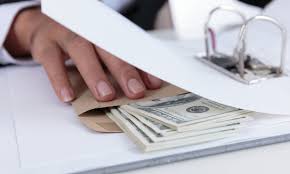Second Circuit Affirms FCPA Conviction of Ng Lap Seng and Rejects Application of Supreme Court’s McDonnell Decision to FCPA

In an interesting decision, well worth a read here, on August 9, 2019, the US Court of Appeals for the Second Circuit rejected Ng Lap Seng’s appeal of his 2017 conviction for bribery of united Nationals officials. In affirming the conviction, the Second Circuit ruled that the Supreme Court’s holding in McDonnell (see blog post here), in which the Court ruled that under 18 USC § 201, the government had to prove that a bribe is paid in exchange for an “official act” – does not apply to cases involving the FCPA (and Section 666 which applies to bribery of state and local officials). The decision is the first circuit court decision considering the application of McDonnell to the FCPA.
The case surrounded a lengthy bribery scheme orchestrated by Ng, a Chinese real estate developer, who bribed two UN officials in order to obtain a formal designation for use of his real estate complex as the permanent site for the annual convention of the UN Office for South cooperation. Ng appointed one official, Francis Lorenzo, as president of a media organization owned by Ng. Lorenzo pleaded guilty, and testified at trial. Ng paid Lorenzo bribes each month, totaling approximately $1 million, in exchange for Lorenzo’s help in securing a deal from the U.N.

Lorenzo introduced Ng to John Ashe, who would go on to become the President of the General Assembly, the U.N.’s second highest ranking official. In exchange for Ashe’s help with securing the U.N. commitment, Ng paid Ashe monthly payments for consulting services by Ashe’s wife that in fact were never provided. Ng also gave Ashe other benefits, including travel for himself and his family and financial support for Ashe’s activities as President of the General Assembly. In exchange for the bribes, both Lorenzo and Ashe worked to secure the U.N. commitment that Ng desired.

On July 27, 2017, Ng was ultimately convicted of conspiracy and bribery-related charges, in violation of 18 U.S.C. §§ 371, 666 (prohibiting bribery at organizations that receive federal funds) and 15 U.S.C. §§ 78dd-2, 78dd-3 (the FCPA), as well as money laundering charges. He was sentenced to four years in prison.
On appeal, NG argued that the district judge erred in a number of ways, including providing incorrect jury instructions that accurately incorporated elements prescribed by the Supreme Court in the McDonnell decision under the general federal anti-bribery statute, 18 U.S.C. § 201, which prohibits a public official from “receiv[ing] or accept[ing] anything of value” in exchange for being “influenced in the performance of any official act.”
The Second Circuit ruled there is no single uniform definition of bribery that applies to all federal crimes. The key to bribery is a quid pro quo, giving an official something of value in exchange for influencing that official in exercising the power of his or her office. The Second Circuit explained, however, that different statutes may define the specific “quids” and “quos” differently.

At bottom, the Second Circuit ruled that the FCPA does not require proof of an “official act” as defined in Section 201 of the federal bribery statute. The Court cited the fact that, unlike the domestic bribery statute, the FCPA does not include a specific “official acts” requirement, and instead makes it a crime corruptly to give a foreign official anything of value for purposes of (1) “influencing any act or decision of such foreign official in his official capacity”; (2) “inducing such foreign official to do or omit to do any act in violation of the lawful duty of such official,” (3) “securing any improper advantage,” or (4) “inducing such foreign official to use his influence with a foreign government or instrumentality thereof to affect or influence any act or decision of such government or instrumentality.”15 nU.S.C. §§ 78dd‐2(a)(1), 78dd‐3(a)(1). The FCPA further requires that each of these quos serves a particular purpose, i.e., to assist the giver in “obtaining,” “retaining,” or “directing” business. Id.
The Second Circuit concluded that the absence of any statutory language requiring a bribe be paid for an “official act” was sufficient to distinguish the McDonnell case from the Ng appeal.















